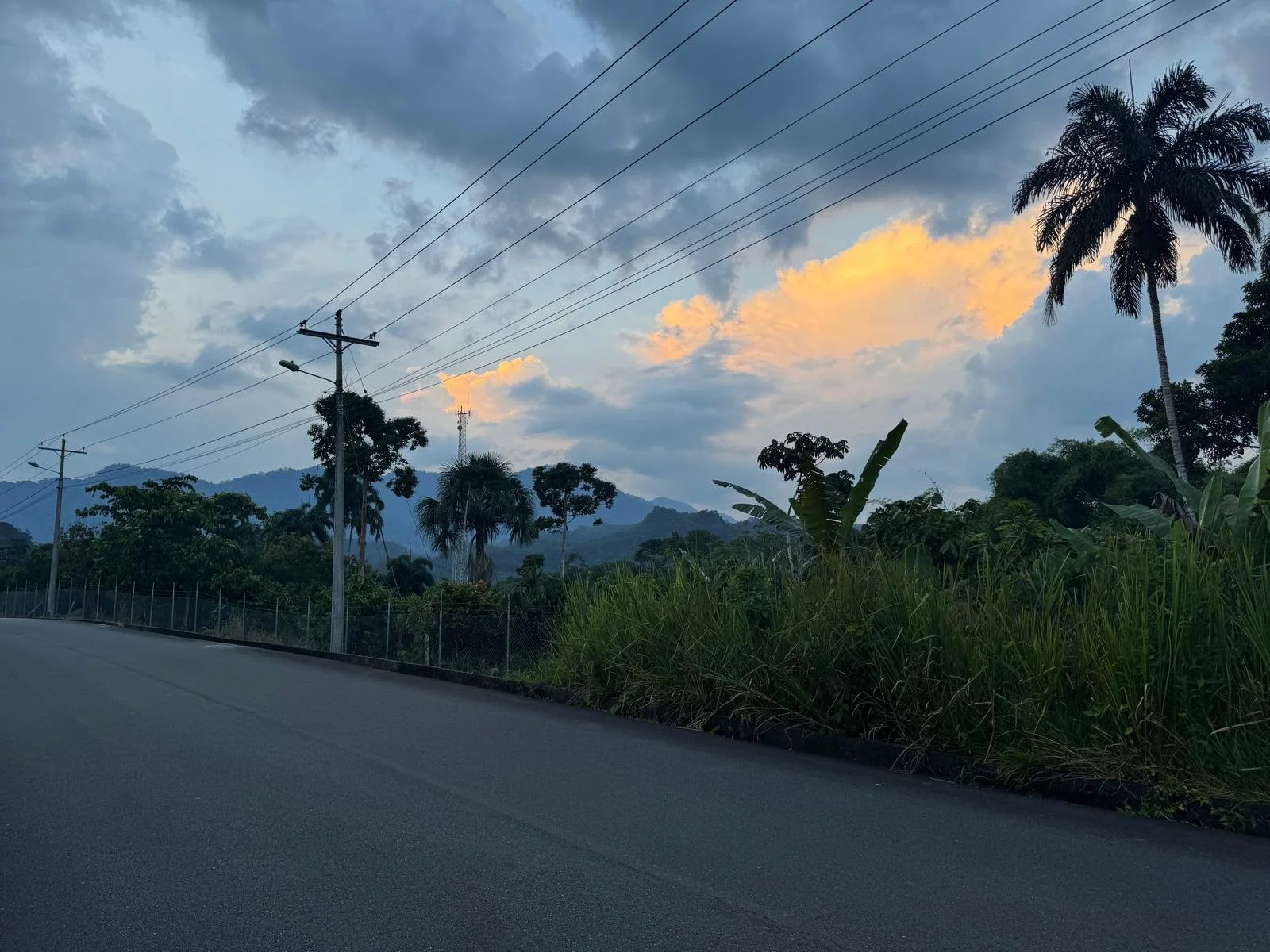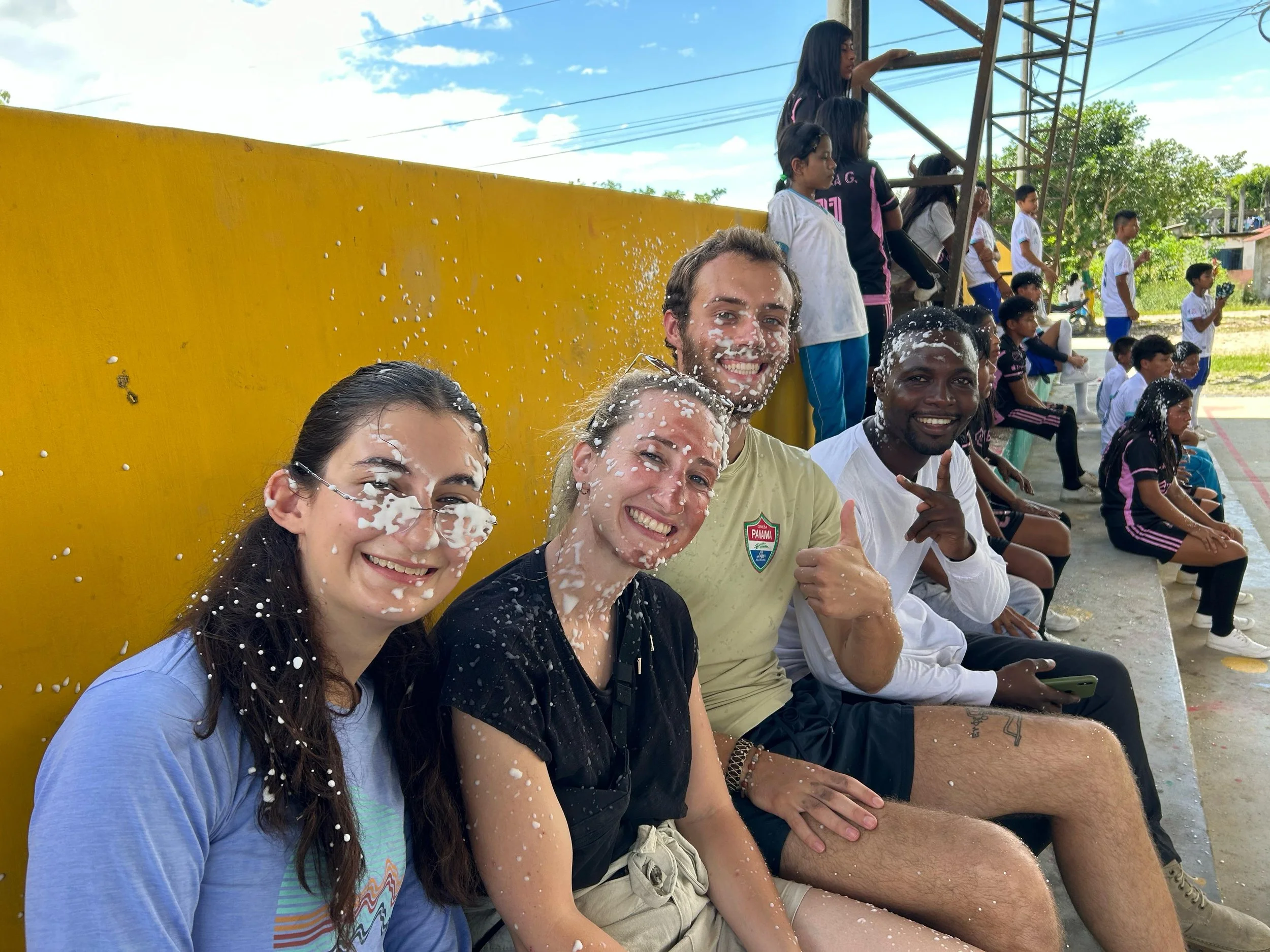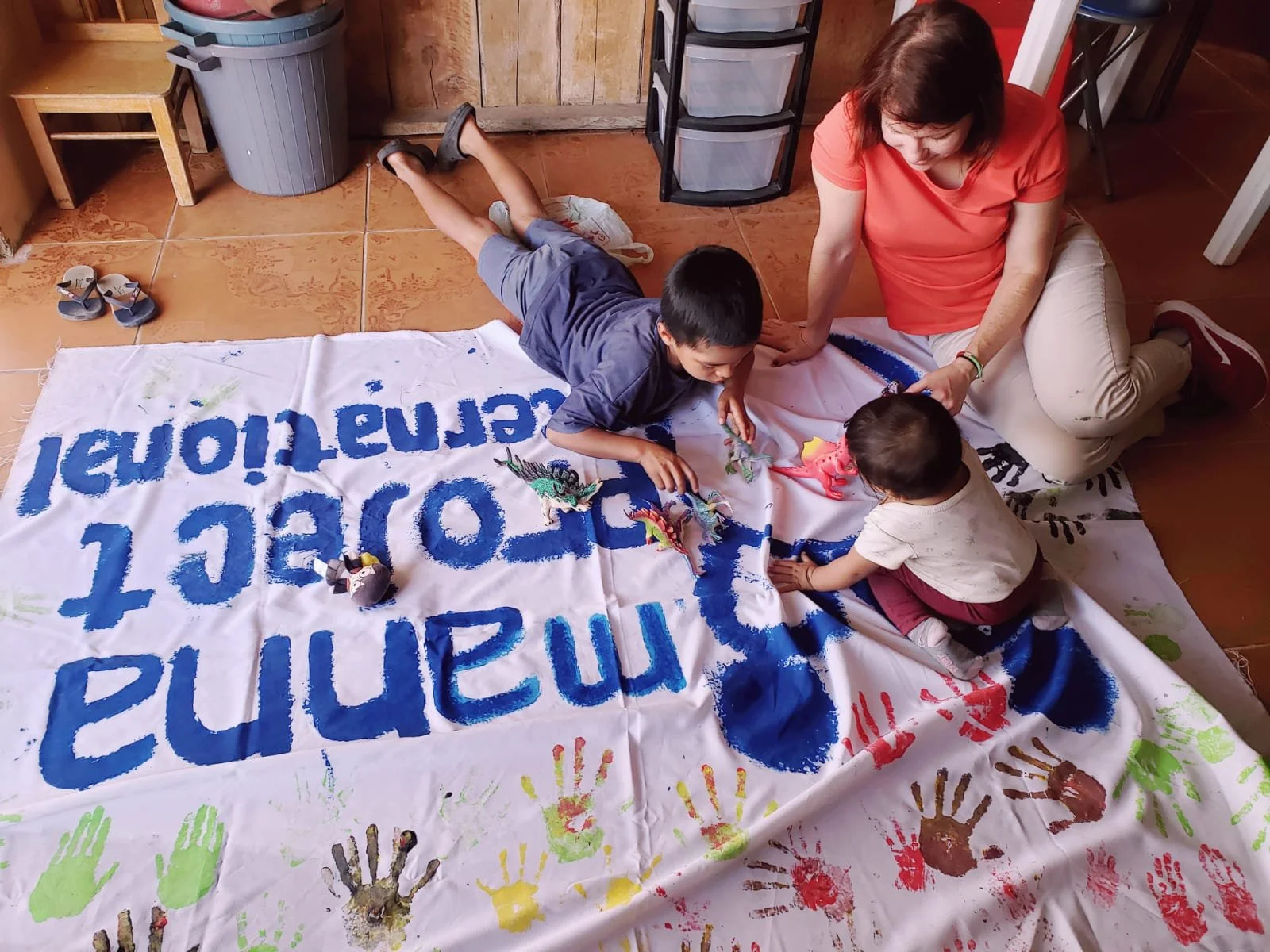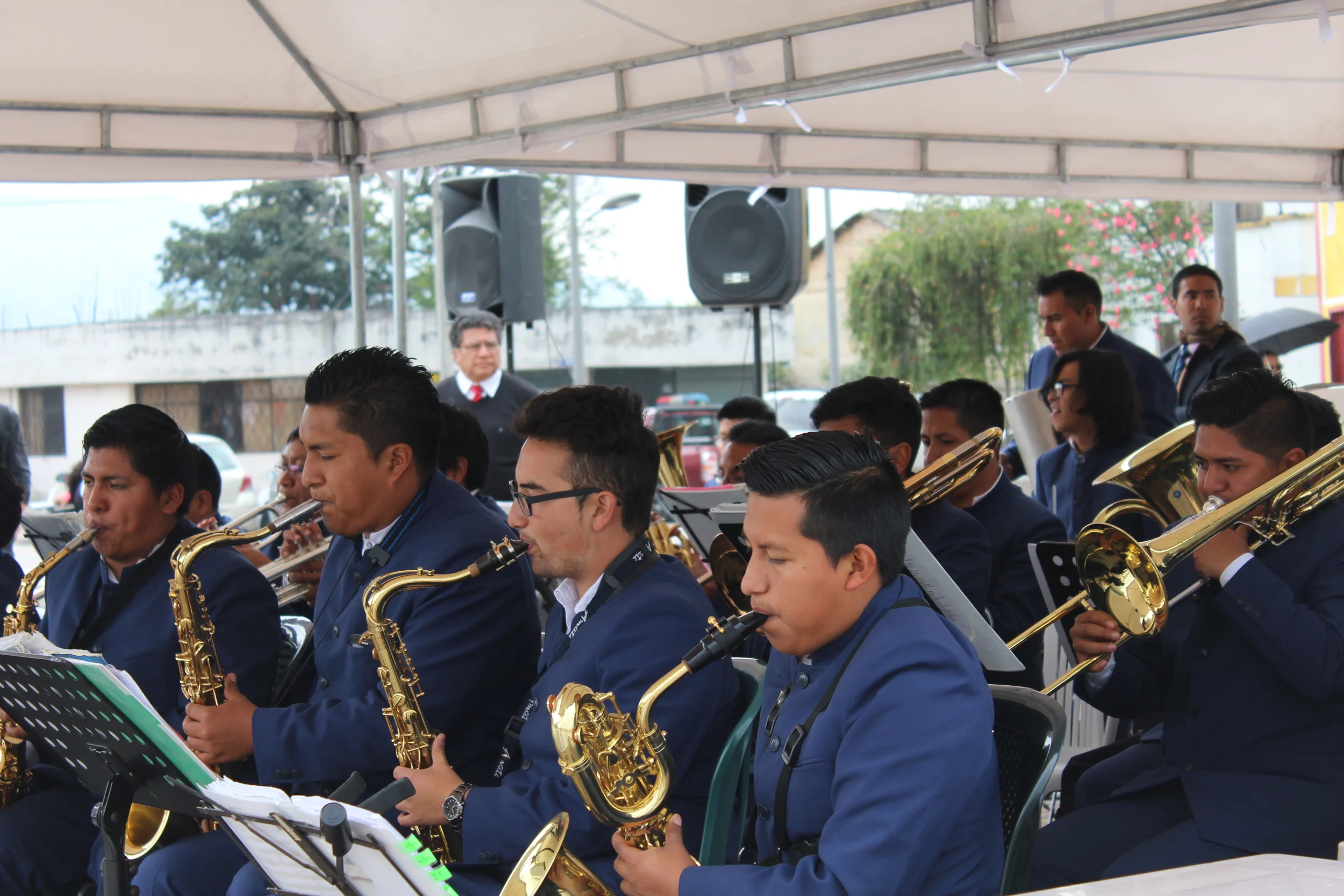Gender inequality is a very serious issue in Ecuador today that affects women of all socioeconomic backgrounds, including those who live in the communities Manna Project International (MPI) serves. At MPI Ecuador, we are very fortunate to have developed a strong relationship with Sheyla Ibarra Dávila, a resident of Sangolqui and also a sociologist who has closely studied the culture of machismo, gender violence, and the state of women's rights in Ecuador. Although Sheyla is busy pursuing her Master's degree in sociology and completing her thesis on International Development Cooperation in Ecuador, she always makes time to share her knowledge with Program Directors and help them to better understand the gender inequalities that exist in Ecuador. The following is an interview Sheyla that highlights some of her research and opinions on the subject.
An Interview with Sheyla Ibarra Dávila
What interests you about sociology?
I’ve always loved the social sciences and being able to work with people. I’m a very curious person and ask questions almost everywhere I go. Sociology is the perfect field for someone who wants to constantly be investigating, researching and learning.
Why is women’s studies your favorite subject of study?
Women’s Studies is incredible to me because women are involved in all aspects of life, but are not valued for it. Although the patriarchal, nuclear family is valued very highly in Ecuadorian society, women are the sturdy, yet voiceless, backbone of every family. Women are intelligent, nurturing, loving and strong individuals and should be recognized and appreciated way more than they are today. I’m very interested in the cultural roots in the devaluing of such important members of our society.
Sheyla
Can you define machismo for those who are unfamiliar with the term?
Machismo is the exercise of power of man over women. It can manifest in physical violence but also in attitude and psychological aggressions. In Ecuador, 53% of women experience this psychological abuse from men, 33% experience physical abuse from men, and 22% experience sexual abuse.
What is life like for the typical Ecuadorian woman?
As I mentioned, Ecuadorian society values the patriarchal, nuclear family with delineated gender roles. In most families, women are not allowed to work and completely depend on their husbands financially. Most men dictate what women can and cannot do, which tends to include the expectation that women should stay at home, tend to the housework and raise children. Even young women who receive an education usually leave their studies or jobs after marriage. Furthermore, because home roles are not taken seriously, women who have outside jobs are given no extra help from their spouses in taking care of house duties.
Can you speak about gender violence in Ecuador?
Gender violence is a difficult subject because it is exacerbated by Ecuadorian cultural norms. For example, 90% of Ecuadorian women who experience violence do not want to take action against their perpetrator because family problems are considered private matters. Some women are worried about what others will think if they come out with accusations against their partners, and others fear more abuse if they speak up. [Most] Ecuadorian women are not taught to have dreams or be independent and because of this, are extremely unlikely to stand on their own in abusive situations. It has been proven that there is a higher risk of violence for married women and that 45-60 years is the age category experiencing the most abuse because that is the age that women are considered to be most “useless” to society. The racial breakdown of women experiencing gender violence is also interesting: 59% of mestizo women, 76% of afro-Ecuadorian women and 77% of indigenous women experience some form of gender violence.
Has there been legislation passed to combat these problems?
Before the 1970s, women [in Ecuador] had almost no rights as individuals. The 1970s and 1980s were filled with equal rights activism work, and in 1994 a law was enacted that allowed women to take legal action against abusive men. In 2008, women were finally given equal civil, political, social and economic rights as men, including the rights to decide freely on their sexual and reproductive health decisions. While huge amounts of money were put towards social programs to support the legislation, the fundamental problem of machismo is ultural problem. Legislation can only do so much to break social limitations.
Do you feel the effects of machismo in the field of sociology?
Absolutely. It’s difficult enough that many people do not take sociology seriously because it is somewhat of an abstract science, and Ecuadorians like concrete concepts. But on top of that, being a female in the field poses its own set of challenges. Most female sociologists are encouraged to study “softer” subjects such as women, children and the elderly, rather than subjects like the environment or politics, which are typically male-dominated fields. Women don’t have problems learning in the classroom, but when they finally leave the classroom to conduct investigations in communities, it is very common for people to not respect them or to prefer to talk to a male sociologist. For this reason, 99% of female sociologists do not practice applied sociology.
What do you feel are the solutions to the issues of machismo and gender violence?
That’s a great question. First, I think it’s important to note that machismo is a widespread problem in Ecuador and doesn’t just exist in one region. Gender violence occurs at about the same rate in large cities as it does in rural areas. Secondly, machismo also exists at all stages of life: early on in schools, in family life and in the work place. While we need to work with men young and old to change opinions and attitudes, we also need to convey to women that actions as large as physical violence and as small as catcalling cannot be naturalized. Neither those actions, nor any in between, should be tolerated by women.
Sangolqui community member and sociologist, Sheyla
While the legislation of 2008 is a step in the right direction, machismo is truly a cultural problem. I think we are all waiting for the younger generation to make a difference. More and more young Ecuadorian women are receiving higher education and hold more progressive values than their family members. Seventy percent of uneducated women experience abuse, but this statistic drops to 50% among educated women. Although a 50% rate of abuse is still alarmingly high, it shows a trend of decreased abuse with education and instills hope for an even lower rate in the future. Finally, in today’s day and age, no country lives in its own bubble. As Ecuador becomes more and more globalized, it will be inspired by the progressive ideas of women who are fighting against violence and machismo all over the world. As stories and experiences are shared, women can be influenced to encourage major perspective changes to society and mold their reality into a safer and more equal one for all people.
Thank you, Sheyla!



















